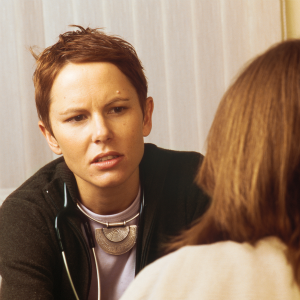People over 50 tend not to get potential cancer symptoms checked out because they worry their problem may seem ‘trivial’ or that they could be wasting their GP’s time, research has found.
Other reasons why people would not go to their GP included fear of a cancer diagnosis, adopting a ‘stiff upper lip’ and lacking confidence in the health system.
In the study, published in the British Journal of General Practice, researchers surveyed patients aged 50 years or older from three London GP practices about their experiences on a range of symptoms.
The survey did not mention cancer specifically but listed 17 symptoms including 10 ‘cancer ‘alarm’ warning signs, such as persistent cough, unexplained lump, persistent change in bowel or bladder habits and a sore that does not heal.
The study authors then analysed the responses of 1,700 patients who had reported at least one cancer alarm symptom in the previous three months.
Five main themes emerged as reasons why people did not seek help about cancer alarm symptoms, namely: believing the symptom was trivial, or normalising it; stoicism; fear; worry about wasting their doctor’s time; and a lack of confidence in the healthcare system.
The main reason for not going to the GP was believing the symptoms were trivial or normalising them, especially for painless or intermittent symptoms.
One woman with persistent abdominal pain said: ‘At times I thought it was bad … but when it kind of fades away, you know, it doesn’t seem worth pursuing really.’
Worry about wasting the GP’s time was also a ‘dominant reason’ for not getting a check-up, the researchers reported. In some cases this was linked to thinking the problem was only trivial, and was usually because patients did not want to be seen to use health care unnecessarily.
One women with unexplained rectal bleeding said: ‘I feel like they are going to go, “For goodness sake, why would you come to me with a silly thing like that?” And they really don’t, but then I don’t ever go for something that’s that silly.
‘I tend to only go when I’ve got something worth wasting his time for, if you know what I mean.’
Lead author Dr Katriina Whitaker, senior research fellow at University College, said: ‘Many of the people we interviewed had red flag symptoms but felt that these were trivial and didn’t need medical attention, particularly if they were painless or intermittent.
‘Others felt that they shouldn’t make a fuss or waste valuable NHS resources. The stiff-upper-lip stoicism of some who decided not to go to their doctor was alarming because they put up with often debilitating symptoms.’
Dr Richard Roope, clinical lead on cancer for both the RCGP and Cancer Research UK, and a GP in Fareham, Hampshire, said: ‘Seeking prompt advice from your GP about symptoms, either on the phone or during an appointment, could be a life-saver, whatever your age. And the good news is that more than half of all patients diagnosed with cancer now survive for more than 10 years.’
Br J Gen Pr 2015; available online 26 January
Pulse October survey
Take our July 2025 survey to potentially win £1.000 worth of tokens














